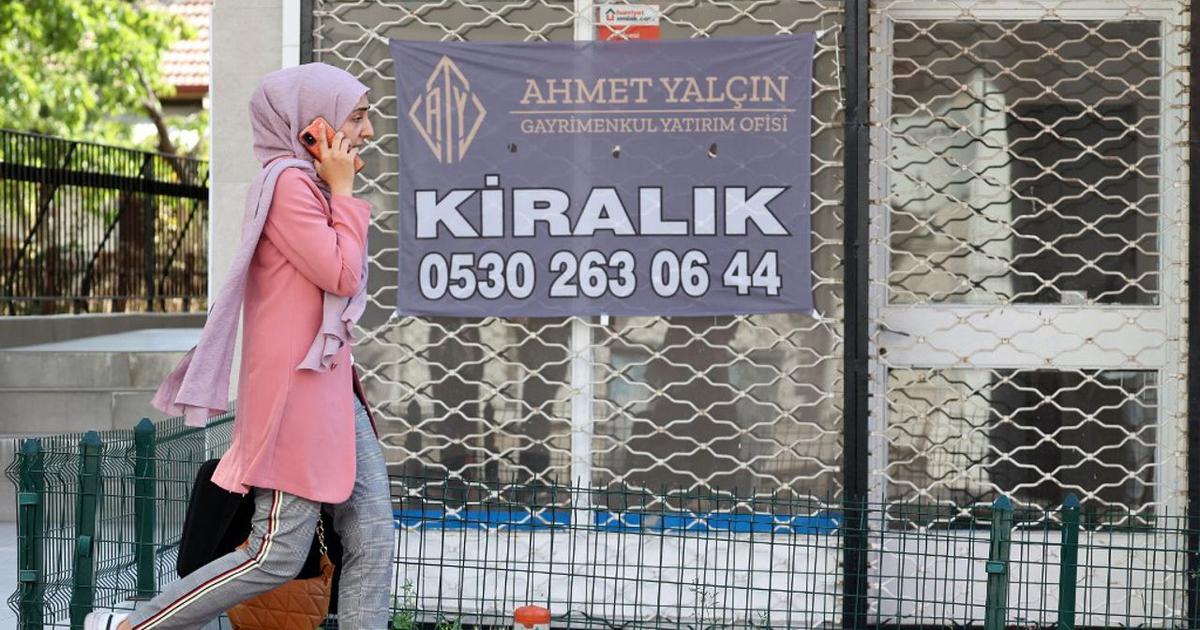Enlarge image
Interior Minister Faeser at the refugee summit: more diagnosis, less therapy
Photo:
MICHELE TANTUSSI / REUTERS
The federal, state and local governments sat together for four hours with Interior Minister Nancy Faeser (SPD).
An hour and a half longer than scheduled.
There was obviously a need for discussion.
In the run-up, a lot had built up with representatives of districts, cities and municipalities.
“It can't go on like this”, “we're at the limit” – the complaints of many municipalities went something like this.
It's getting cramped in the refugee accommodation, and gymnasiums, old barracks and hotels have long been occupied in many places.
But not much tangible came across at the refugee summit in Berlin.
It was more about "a diagnosis, not a therapy," said a state minister afterwards.
Faeser was unable to make any promises to the municipalities at the meeting about further billions in aid for the care of refugees.
Chancellor Olaf Scholz (SPD) is supposed to negotiate this with the Prime Minister around Easter.
By then, four newly founded working groups from the federal, state and local governments should also present their results.
The issues at stake are “accommodation”, “relief for the immigration authorities”, “integration” and “limitation of irregular migration/returns”.
In addition, a digital “dashboard” will in future provide current refugee numbers down to district and city level.
And thus ensure more transparency.
Disillusionment, disappointment and a gloomy picture
The representatives of the municipalities did not even try to hide their disappointment.
"Measured by the pressure on site, the results are sobering today," said the President of the German District Association, Reinhard Sager (CDU).
His general manager, Hans-Günter Henneke, left the press conference in the Ministry of the Interior in a rage and shouted: "Hypocrisy".
Perhaps the expectations of the “refugee summit” were simply too great to be met.
Some district administrators not only hoped for more help in accommodating refugees.
But a fundamental change of course in the refugee policy of the traffic light - including massive limitation of further entries.
However, this is likely to be difficult in the foreseeable future.
The war in Ukraine rages on unabated, this week Russia launched a new offensive in the east of the country.
And the number of asylum seekers has recently continued to rise after around 220,000 in 2022.
In January, 29,000 men and women applied for asylum, half of them fleeing Syria or Afghanistan.
The German authorities are not expecting any relaxation, on the contrary.
The federal police chief and the head of the Federal Office for Migration and Refugees are said to have painted a rather bleak picture of the situation at the summit meeting, participants report.
“If the current number of arrivals continues, we will have to prepare for another 300,000 to 400,000 refugees this year,” said Brandenburg Interior Minister Michael Stübgen (CDU).
Germany can only rely on solidarity within the European Union to a limited extent.
The hope that there will be a new common asylum system in the EU, including a fair distribution of refugees across all member states, has long since been dashed.
Numerous countries refused a mandatory quota.
The burdens in Europe are also unequally distributed when it comes to taking in people displaced from the Ukraine.
With around 1.56 million people admitted, Poland bears the brunt, alongside Germany (1 million) and the Czech Republic (490,000).
Only 165,000 Ukrainians fled to Spain and 120,000 to France.
"It can't stay like this," said Faeser after the refugee summit.
She will work for a fairer distribution in Europe.
But how that is supposed to work remains unclear.
So far, it has been difficult to control: Refugees from Ukraine can decide for themselves in which EU country they want to live - and often choose a country close to home.
"Staying power and patience"
In order to provide relief, the federal government now wants to ensure a more consistent deportation of rejected asylum seekers and other foreigners without a right to stay.
The "repatriation offensive" by Joachim Stamp (FDP), who has been the "Special Representative for Migration Agreements" in the Federal Ministry of the Interior since February, is intended to make this possible.
His task: to negotiate with states that repeatedly refuse to take back their citizens.
But quick solutions are not to be expected here either.
Stamp will take time to finalize the deals.
And he will have to offer the countries in Africa and Asia something for better cooperation on deportations, such as more development aid or easier visas for business travelers.
Stamp himself dampened expectations at the refugee summit: "It takes a lot of staying power and patience."
Even if migration agreements are reached with some states, the traffic light's "repatriation offensive" will have narrow limits.
Deportations are currently largely suspended in several important countries, for example because it is too dangerous there, including Syria, Afghanistan, Iran, Somalia and Eritrea.
The pressure on Interior Minister Faeser will continue to increase in the coming weeks.
By Easter at the latest, she will have to provide more concrete answers, no matter how complex the problems are.














